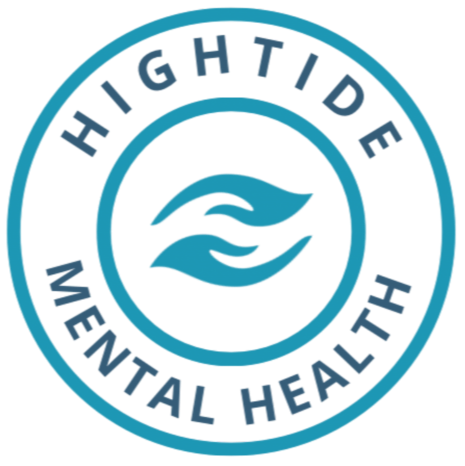DEPRESSION TREATMENT
Major Depressive Disorders
Depression is more than sadness. It can feel like carrying a heavy weight that you cannot put down. Simple tasks like getting out of bed, brushing your teeth, or returning a call feel impossible. Your body may feel slowed, drained of energy, and your thoughts may feel foggy or dark. For some, depression makes life feel flat and empty, as though joy is unreachable. For others, it brings constant guilt, hopelessness, or thoughts of not wanting to go on.
The Spectrum of Sadness
Sadness is a universal human emotion. It is natural after loss, disappointment, or stress. Most sadness fades with time and support. But when sadness becomes prolonged, severe, or starts to shut down functioning, it can develop into depression. Depression is not simply “more sadness.” It is a disorder involving changes in the brain, body, and nervous system that interfere with daily life.
Misconceptions About Depression
Many people think depression is only about negative thoughts, and that changing those thoughts should make the depression disappear. This view misses the reality of depression. Depression is not just in the mind, it is in the body. It is the slowing of physical systems: sleep, appetite, energy, immune function, concentration. That is why “thinking positive” or “snapping out of it” is not possible. Depression requires care for both the mind and the body.
Types of Depressive Disorders
Major Depressive Disorder (MDD)
MDD involves episodes of depression lasting at least two weeks. Symptoms include persistent sadness, loss of interest in activities, fatigue, changes in appetite or sleep, feelings of guilt or worthlessness, difficulty concentrating, and thoughts of death. MDD is classified by severity: mild, moderate, or severe.
- Mild depression: symptoms are noticeable but the person can still function, though with difficulty.
- Moderate depression: symptoms interfere with work, relationships, or responsibilities.
- Severe depression: symptoms are disabling, making it hard to carry out daily life, sometimes including psychotic features.
Persistent Depressive Disorder (Dysthymia)
This is a chronic, long-lasting form of depression. Symptoms may be less intense than MDD but last for years, often making it feel like sadness is part of someone’s personality.
Seasonal Affective Disorder (SAD)
Depression that occurs at certain times of the year, often in winter when there is less sunlight. SAD includes typical depressive symptoms but has a seasonal pattern.
Perinatal and Postpartum Depression
Depression during pregnancy or after childbirth. This is more than the “baby blues.” It involves serious changes in mood, energy, and functioning, and requires support and treatment for both parent and child.
Depression Treatment Approaches
Effective treatment for depression looks at both the mind and the body.
- Therapy: Cognitive Behavioral Therapy (CBT) has long been a leading treatment. In the past, CBT mainly targeted negative thoughts. Over time, CBT and related therapies have expanded to include body awareness and somatic symptoms. This means not only noticing and challenging unhelpful thoughts, but also tuning into how depression lives in the body—tension, exhaustion, heaviness—and learning to work with those sensations. Other approaches include Acceptance and Commitment Therapy (ACT), trauma-focused therapies, and Interpersonal Therapy (IPT).
- Medication: Antidepressants help regulate brain chemistry and can reduce the intensity of symptoms.
- Lifestyle and body-based approaches: Movement, breathwork, nutrition, and sleep support are essential. Since depression is also physiological, treatment must support the body in healing, not just the mind.
- Support systems: Group therapy, family involvement, and social connection all improve recovery.
We offer all of these treatments at our treatment center.
Why Depression Happens
Depression develops from a mix of factors:
- Brain chemistry: changes in neurotransmitters like serotonin, dopamine, and norepinephrine.
- Genetics: family history increases risk.
- Trauma and stress: early experiences or major life events can trigger depression.
- Environment: isolation, loss, chronic stress, or lack of support can deepen symptoms.
Partial Hospitalization Program (PHP)
PHP is a full-day program, running from 9:00am to 4:00pm. Picture arriving in the morning and starting the day with a group that helps you set small intentions: noticing your energy level, naming what feels heavy, and identifying a skill you want to practice. Midday might include one-on-one therapy, where you talk through the thoughts or body symptoms weighing you down, and begin to connect them to patterns in your life. Lunch is spent in a supportive community where you don’t have to pretend to feel okay. Afternoons often focus on body-based work, grounding, or learning tools to ease physical tension. A psychiatrist is available to help manage medications. By the time you leave in the late afternoon, you have spent the day in a structured environment where every part of your experience (mind and body) has been cared for.
Intensive Outpatient Program (IOP)
IOP takes place several days a week for part of the day. It allows you to keep up with work, school, or family while still coming into treatment. A typical IOP day might mean going to class or work in the morning, then joining an afternoon group where you share what was difficult and practice new coping strategies in real time. You still have access to individual therapy and psychiatric support, but the focus shifts to using skills in daily life while checking in regularly with your treatment team. In IOP, recovery becomes about practicing stability while staying connected to your world outside of treatment.
Depression Treatment Program at Hightide Mental Health
Depression can change how you move through the world, but it can also be treated. Healing means finding care that supports both your body and your mind, and building routines that make life feel possible again. At HighTide Mental Health, we provide structured, compassionate treatment to help you carry what feels unbearable and slowly set it down.

